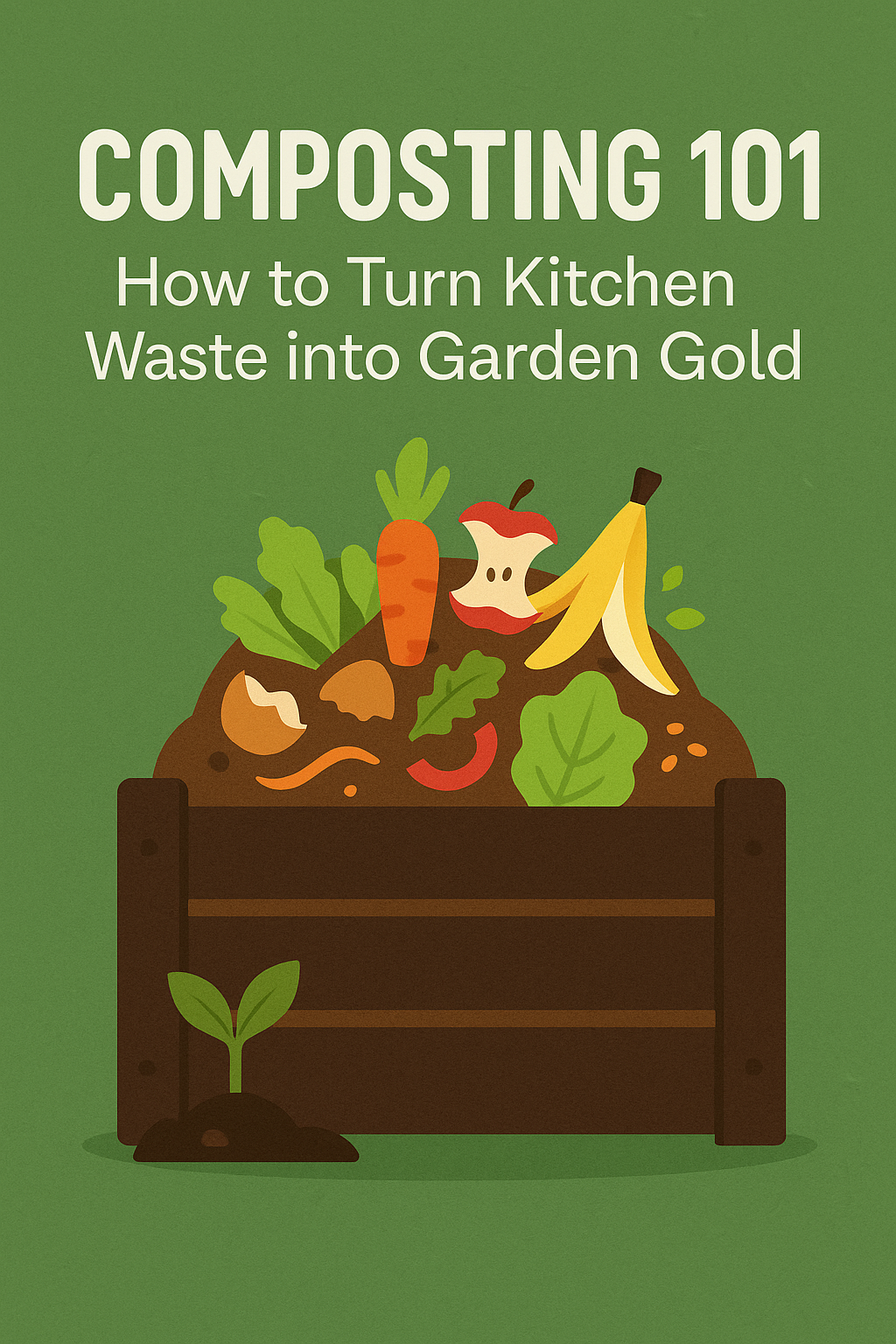
Want to reduce waste and grow a healthier garden? Composting is one of the easiest and most effective ways to recycle organic materials and turn them into nutrient-rich soil. If you’re just getting started, this beginner-friendly guide will help you understand the basics and start composting with confidence.
What Is Composting?
Composting is the natural process of breaking down organic materials—like food scraps and yard waste—into a dark, earthy, soil-like substance called compost. This compost can be added to your garden to improve soil structure, boost microbial activity, and feed your plants organically.
Why Compost?
- Reduces household waste going to landfills
- Improves soil health and fertility
- Supports beneficial microorganisms
- Reduces the need for chemical fertilizers
- Promotes sustainable gardening practices
What You Can Compost
Here’s a quick breakdown of what to include in your compost pile:
✅ Greens (Nitrogen-rich)
- Fruit & vegetable scraps
- Coffee grounds & filters
- Tea bags (unbleached)
- Fresh grass clippings
- Eggshells (crushed)
✅ Browns (Carbon-rich)
- Dry leaves
- Cardboard (shredded)
- Paper towels & napkins
- Sawdust (untreated wood)
- Straw or hay
What Not to Compost
To keep your compost pile safe and odor-free, avoid adding:
- Meat, dairy, and oily foods
- Pet waste
- Diseased plants
- Glossy or colored paper
- Plastic or synthetic materials
How to Start a Compost Pile
You can compost in a bin, pile, or tumbler. Here are the steps to get started:
- Choose a location: Pick a dry, shady spot near a water source.
- Build your base: Start with a layer of twigs or straw to promote airflow.
- Add layers: Alternate green and brown materials in layers.
- Keep it moist: Your pile should feel like a wrung-out sponge.
- Turn regularly: Aerate the pile every 1–2 weeks to speed up decomposition.
How Long Does Composting Take?
Depending on conditions, composting can take anywhere from 2 months to 6 months. Hot composting (with regular turning and balanced materials) is faster. Cold composting takes longer but requires less effort.
Signs Your Compost Is Ready
Finished compost is dark brown, crumbly, and smells like rich earth. You shouldn’t be able to recognize any of the original materials. It should no longer smell like rotting food or grass.
How to Use Finished Compost
- Mix it into garden beds before planting
- Use it as a top dressing around vegetables and flowers
- Add to potted plants to boost nutrients
- Make compost tea to feed plants naturally
Tips for Beginner Composters
- Chop large items to help them break down faster
- Keep a small bin in the kitchen for collecting scraps
- Maintain a 2:1 ratio of browns to greens
- If your pile smells bad, add more browns and turn it
FAQ: Composting Basics
Can I compost in an apartment?
Yes! You can use a worm bin (vermicomposting) or compact kitchen composters to compost indoors without odor.
Do I need a compost bin?
No, you can compost in an open pile. However, bins help keep things tidy and protect the compost from pests and excess moisture.
Final Thoughts
Composting is one of the easiest ways to reduce waste and create nutrient-rich soil for your garden. With just a little effort and consistency, you’ll be turning everyday scraps into “black gold” that powers your plants naturally. Start small, be patient, and watch your garden thrive.
Looking for ways to use your compost? Check out our guide on Best Organic Fertilizers for Vegetable Gardens.



